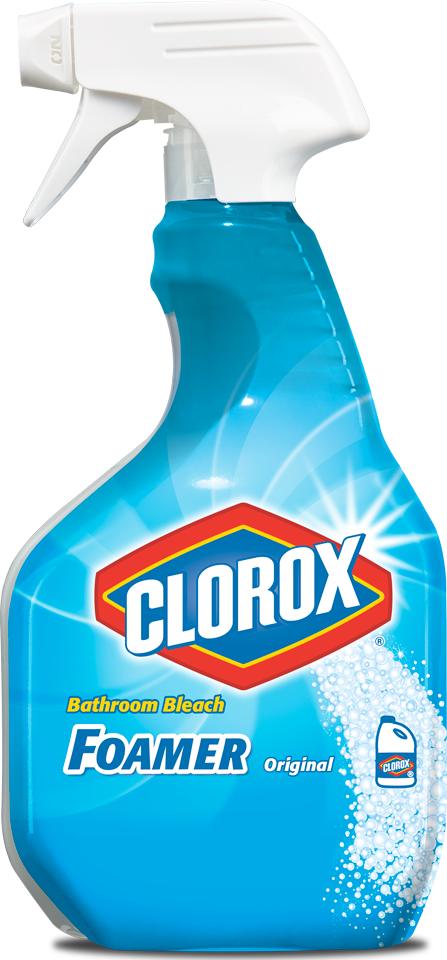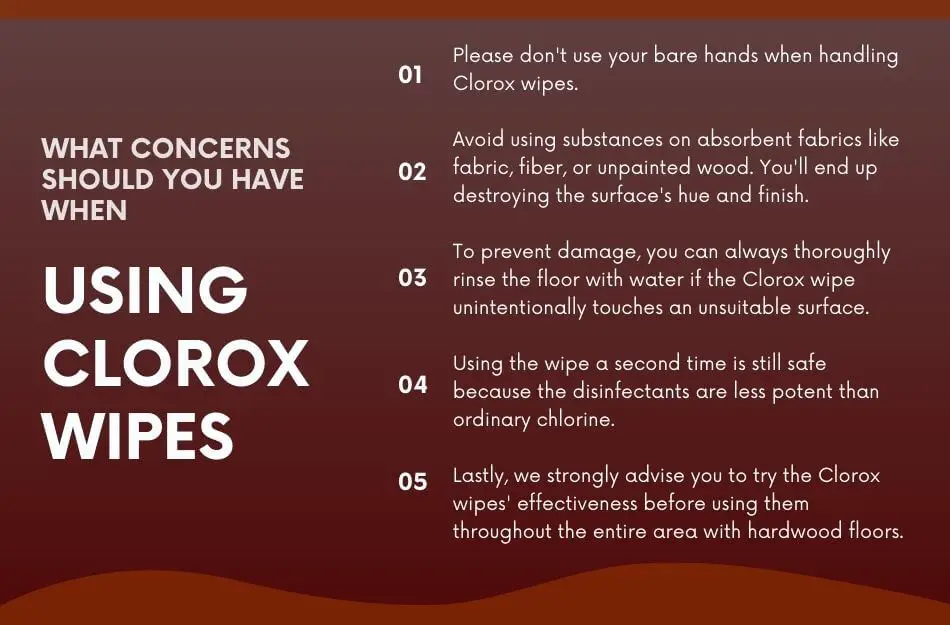Have you ever spilled a sticky beverage on your pristine vinyl floor? Or perhaps your pet decided to leave a less-than-desirable mark? In moments like these, the familiar blue and yellow packaging of Clorox wipes may seem like a quick and easy solution. But before you go scrubbing away, there’s an important question that needs to be addressed: Is it safe to use Clorox wipes on vinyl flooring?

Image: cinvex.us
The answer, as with many cleaning dilemmas, is not a simple yes or no. The safety of using Clorox wipes on vinyl flooring hinges on several factors, including the type of vinyl, the specific product used, and the frequency of cleaning. This guide will delve into the intricacies of this topic, equipping you with the knowledge to make informed decisions about your vinyl flooring care.
Understanding Vinyl Flooring
Vinyl flooring, known for its durability, affordability, and versatility, has become a popular choice for homeowners. But despite its widespread use, many people aren’t entirely sure about the best ways to maintain it. Before addressing the Clorox wipe dilemma, let’s first understand the nuances of vinyl flooring.
Types of Vinyl Flooring
Vinyl flooring comes in various forms, each with its unique properties and cleaning requirements. Here are some of the most prevalent types:
- Sheet vinyl: This type, often found in kitchens and bathrooms, is made from a single, continuous piece of vinyl. It’s known for its seamlessness and affordability but can be more challenging to install than other options.
- Luxury vinyl tile (LVT): This popular choice offers a realistic wood or stone look, with durable and water-resistant properties. Its individual tiles are versatile and can be installed in a variety of patterns.
- Luxury vinyl plank (LVP): LVP boasts a longer plank format than LVT, adding a sleek and modern feel to spaces. Its durability and water resistance make it well-suited for high-traffic areas.
The Chemistry of Vinyl Flooring
Vinyl flooring is primarily composed of polyvinyl chloride (PVC), a synthetic polymer that provides its flexibility, durability, and water-resistance. The specific composition of PVC can vary depending on the type of vinyl flooring. Some manufacturers add additives like pigments, stabilizers, and plasticizers to improve the flooring’s properties. It’s essential to be aware of these additives, as they can impact how the vinyl reacts to cleaning products.

Image: flooringflow.com
Clorox Wipes: A Closer Look
Clorox wipes are a ubiquitous cleaning solution, known for their ability to kill germs and remove dirt. But the active ingredient in most Clorox wipes is bleach, a powerful disinfectant that can also be harsh on certain materials.
The Duality of Bleach
Bleach is a double-edged sword in the cleaning world. It’s highly effective at eliminating bacteria and viruses, making it a valuable tool for sanitizing surfaces. However, bleach can also be corrosive, especially when used on delicate or absorbent surfaces. The key is using bleach in a manner that’s safe for the materials you are cleaning.
Clorox Wipes and Vinyl Flooring
The question of whether Clorox wipes are safe for vinyl flooring is not a universally applicable one. Some types of vinyl flooring can withstand the cleaning power of bleach-based wipes without sustaining damage, while others may be more susceptible to discoloration, fading, or even warping.
Factors to Consider before Using Clorox Wipes
Before wielding a Clorox wipe on your vinyl flooring, consider the following factors:
1. The Type of Vinyl Flooring
As mentioned earlier, vinyl flooring comes in various forms, each with its unique properties. Luxury vinyl tiles and luxury vinyl planks are generally considered more durable than sheet vinyl. With this said, it’s always best to consult your flooring’s manufacturer’s instructions or a professional before using harsh cleaners.
2. The Specific Clorox Wipe Product
Not all Clorox wipes are created equal. Some are formulated specifically for disinfecting and may contain higher levels of bleach. Others are designed for general cleaning and may contain gentler ingredients. Always carefully read the product label to understand its specific purpose and whether it’s safe for your flooring type.
3. The Frequency of Cleaning
While Clorox wipes can be used to address spills and accidents, they shouldn’t be your go-to cleaning method for regular vinyl floor maintenance. Over-using harsh cleaners can strip the flooring’s protective layer, leaving it vulnerable to scratches and stains. Stick to gentler cleaners for routine mopping and use Clorox wipes only when necessary.
4. Visible Signs of Damage
If you notice any signs of discoloration, fading, or warping after using Clorox wipes, stop using them immediately and consult a professional for advice. It’s essential to address any potential problems before they escalate.
Alternatives to Clorox Wipes
If you’re concerned about the potential effects of bleach-based wipes on your vinyl flooring, there are many alternatives available. These options may not be as powerful, but they’re gentler on your flooring and overall safer for your home.
Gentle Cleaning Solutions
- Vinegar solution: A mixture of white vinegar and water is an effective, natural cleaner that can help sanitize and remove dirt and grime from vinyl flooring. It’s gentle enough for regular cleaning and doesn’t pose the same risks as bleach.
- Dish soap solution: A mild dish soap diluted in water can be used to create a gentle cleaning solution for vinyl floors. Avoid using harsh or abrasive dish soaps that may strip away the flooring’s protective finish.
Specialized Vinyl Floor Cleaners
Many manufacturers offer cleaning solutions specifically formulated for vinyl flooring. These cleaners are designed to remove dirt and grime without compromising the flooring’s finish.
Tips for Cleaning Your Vinyl Flooring
Here are some helpful tips to ensure a successful and safe cleaning experience for your vinyl flooring:
- Always test a hidden area: Before applying any cleaning solution to your entire vinyl floor, test it in a discreet area to ensure it doesn’t cause any damage or discoloration.
- Use a microfiber mop: Microfiber mops are specifically designed for cleaning floors without scratching or leaving behind residue.
- Avoid harsh scrubbing: Scrubbing too hard can damage your vinyl flooring. Use gentle pressure and let the cleaner do its job.
- Rinse thoroughly: After cleaning, ensure you rinse the floor thoroughly with clean water to remove any cleaning residue. This will help prevent dulling or streaking.
Can You Use Clorox Wipes On Vinyl Flooring
Conclusion
So, can you use Clorox wipes on vinyl flooring? While a quick wipe may seem like a convenient solution for spills or messes, it’s crucial to consider the specific type of vinyl, the Clorox wipe product used, and the frequency of cleaning. Always prioritize the longevity and beauty of your vinyl flooring by opting for gentle cleaning practices and opting for alternatives when in doubt. By following these tips and making informed cleaning decisions, you can ensure your vinyl flooring remains beautiful and durable for years to come.





